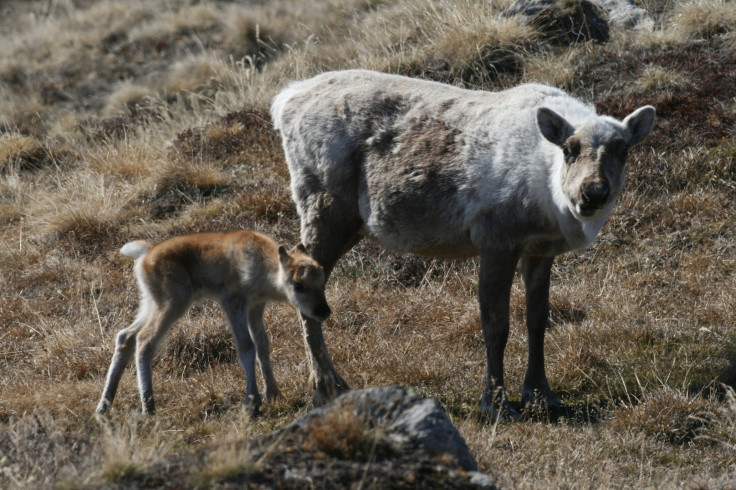Caribou Feeling The Heat Of Climate Change Too: Study

You’re probably familiar with the plight of the polar bear in a warming world, but did you know that melting sea ice might be endangering caribou too?
Penn State University biologist Eric Post has been tracking the caribou population in Greenland for two decades. Now he and colleague Jeffrey Kerby have found that the loss of sea ice is indirectly leading to larger die-offs of baby caribou. Post and Kerby reported their findings in a paper published Tuesday in the journal Nature Communications.
The heart of the problem lies in a growing mismatch between the life cycles of the caribou and the plants they feed upon. Caribou arrive in their ancestral calving grounds between late May and early June, searching for young vegetation to feed upon. But the warmer temperatures in a changing climate are driving a wedge between the animals and their food.
Thanks to warmer temperatures,"plants are emerging earlier in the year, [so] they tend to be older and past their peak nutritional value by the time the hungry caribou arrive to eat them," Kerby said in a statement. "The animals show up expecting a food bonanza, but they find that the cafeteria already has closed."
Plant life cycles are relatively flexible. New generations can time their emergence with the outside temperatures to maximize their fitness. But the caribou life cycle marches to a separate drum: day length. Since seasonal changes in daylight length are fixed, so is the caribou’s reproductive cycle.
“This scenario is what we call a trophic mismatch -- a disconnect between the timing of when plants are most nutritious and the timing of when animals are most dependent on them for nutrition," Kerby said.
The Arctic is particularly vulnerable to climate change, since the loss of sea ice exposes dark water that absorbs more heat and thus, drives even more sea ice loss – a positive feedback mechanism. Before 2000, about half of the plant species at the caribou calving site emerged around the same time as the caribou arrived. But from 2002 to 2011, as the sea ice loss has accelerated, the plant growing season has shifted earlier by more than two weeks, and the mismatch between plant emergence and caribou arrival has grown steadily larger.
"Sea ice is part of a broader climate system that clearly has important effects on both plants and animals,” Post said in a statement. “Exactly how sea-ice decline might affect species interactions in this and other types of food webs on land in the Arctic is a question that deserves greater attention.”
SOURCE: Kerby et al. “Advancing plant phenology and reduced herbivore production in a terrestrial system associated with sea ice decline.” Nature Communications published 1 October 2013.
© Copyright IBTimes 2024. All rights reserved.




















